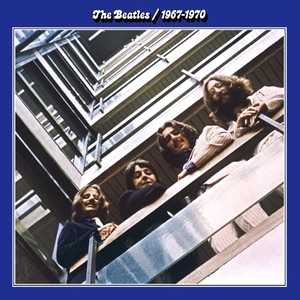
Mai Kuraki is a Japanese pop and R&B singer, songwriter and record producer. After releasing her US debut single "Baby I Like" in 1999, Kuraki signed with Giza Studio and released her Japanese debut single "Love, Day After Tomorrow" in 1999. In 2000, she released her debut album, Delicious Way, which debuted at number-one and sold over 2.2 million copies in its first week. The album has spawned four top-three singles, "Love, Day After Tomorrow", "Stay by My Side", "Secret of My Heart", and "Never Gonna Give You Up". Eventually, the album sold over 3.5 million copies nationwide and became the best-selling album in Japan in 2000, and has been the ninth best-selling album in Japan of all-time.

Namie Amuro is a retired Japanese singer. She rose to prominence as a teen idol, and transitioned into a leading pop artist due to her versatility across music styles and visual presentation. Due to her career reinventions and longevity, she is known as an icon across Japan and Asia. She has been referred to as the "Queen of Japanese Pop", and her influence domestically has drawn equivalent comparisons to artists such as Janet Jackson and Madonna in Western pop culture.

1967–1970, also known as the Blue Album, is a compilation album of songs by the English rock band the Beatles, spanning the years indicated in the title. A double LP, it was released with 1962–1966 in April 1973. 1967–1970 topped the Billboard albums chart in the United States and peaked at number 2 on the UK Albums Chart. It was re-released in September 1993 on CD, charting at number 4 in the United Kingdom.

The English rock group the Rolling Stones have released 31 studio albums, 13 live albums, 28 compilation albums, 3 extended plays, 122 singles, 31 box sets, 51 video albums, 2 video box sets and 77 music videos. Throughout their career, they have sold over 250 million records worldwide, making them one of the best-selling music artists of all time. Billboard ranked them as the 2nd Greatest artist of all time. The Rolling Stones have scored 38 top-10 albums on the Billboard 200 and 8 No. 1 hits on the Billboard Hot 100. According to the Recording Industry Association of America, they have sold 66.5 million albums in the US, making them the 16th best-selling group in history.

Greatest Hits is the eleventh official album release for English musician Elton John, and the first compilation. Released on 8 November 1974, it spans the years 1970 to 1974, compiling ten of John's singles, with one track variation for releases in North America and for Europe and Australia. It topped the album chart in both the United States and the United Kingdom, staying at number one for ten consecutive weeks on the Billboard 200 and eleven weeks on the UK Albums Chart. In Canada, it was number one for 13 weeks between 14 December 1974, and 22 March 1975, missing only 28 December 1974, at number two to Jim Croce's Photographs & Memories.

Valenti is the second Japanese studio album by South Korean recording artist BoA, released through Avex Trax on January 29, 2003. The album's lyrics were written by multiple contributors including Natsumi Watanabe and Kenn Kato, with composition on the album handled by a team of composers including Kazuhiro Hara, Bounceback, Kosuke Morimoto, Ken Harada, and Akira. Valenti is a pop record containing influences from R&B and dance music, and is primarily recorded in Japanese with minor interspersed phrases in English.

Listen to My Heart is the debut Japanese studio album by South Korean recording artist BoA, released via Avex Trax on March 13, 2002. BoA worked with a team of songwriters and composers to produce the album, including Natsumi Watanabe, Kazuhiro Hara, Ken Harada and Akira; all of whom would collaborate with BoA again on her future albums. Musically, Listen to My Heart is primarily a pop record with influences from R&B.

Love Enhanced Single Collection is the second greatest hits album by Japanese singer Namie Amuro. It was released on March 13, 2002, through Avex Trax. This was Amuro's first greatest hits album in about four years, since 181920. It was also her first greatest hits album since her return to the music scene. Although the album is labeled as a "singles collection," nearly all of the songs on the album have been re-recorded, re-mixed, or re-arranged, all of which remain exclusive to this album's release. In addition, only "Lovin' It" was recorded as a single take. The album also contains the last of the work she created with her longtime creative partner Tetsuya Komuro.

Ultra Blue is the sixth album by Japanese–American singer Hikaru Utada, released on June 14, 2006, by Eastworld. It is the first original Japanese language album under Hikaru Utada's name in four years since her third album Deep River (2002). Ultra Blue contains thirteen songs, including six singles released between 2003 and 2006. While the arrangements for her album Deep River were done collaboratively, all but one of the songs on Ultra Blue were written, composed, and arranged solely by Utada, who also did the programming herself. In this album, the R&B elements that have been present since her debut are further diminished, and the majority of the songs have an electronic flavor with an emphasis on synth sounds.

The discography of Japanese-American R&B and pop singer Hikaru Utada consists of eleven studio albums, four compilation albums, eleven video albums and numerous singles and promotional singles. Utada began as a musician in the early 1990s as a member of U3, a family unit made up of her, her mother Junko Utada, also known as 1970s enka singer Keiko Fuji, and her father, musical producer Teruzane Utada. U3 released their debut album Star in 1993, with the hope to debut in America. In 1996, the group was rebranded as Cubic U, an R&B project focusing on Hikaru Utada, resulting in the English language album Precious in 1998 with record label Toshiba EMI.

The discography of Japanese R&B singer Misia consists of nine studio albums, three compilation albums, one extended play (EP), one live album, six remix albums, twenty-six singles, twelve promotional singles, eighteen video albums and thirty-seven music videos. In 1997, Misia signed a recording contract with BMG Japan and joined the then up-and-coming talent agency, Rhythmedia. Under the sub-label Arista Japan, Misia released her first single, "Tsutsumikomu Yō ni..." in February 1998, followed by "Hi no Ataru Basho" in May. In June, her debut album, Mother Father Brother Sister, opened at number three on the Oricon chart. The album peaked at number one three weeks later and stayed in the top five for eleven consecutive weeks. Mother Father Brother Sister was certified double million and won a Japan Record Award for Best Album, as well as a Japan Gold Disc Award for Pop Album of the Year. In 2000, Misia's second studio album, Love Is the Message, debuted at number one and was certified double million. It won a Japan Record Award for Best Album and a Japan Gold Disc Award for Pop Album of the Year. The album spawned three top ten hits: "Believe," "Wasurenai Hibi" and "Sweetness." Misia's first remix album, Misia Remix 2000 Little Tokyo, was released three months later and shot to number one. It sold over 800,000 copies and is the second best-selling remix album of all time in Japan.

"Beautiful World" is a song by Japanese American musician Hikaru Utada. It served as the theme song for Evangelion: 1.0 You Are (Not) Alone, the 2007 film reboot of the anime Neon Genesis Evangelion. It was released as a double A-side single on August 29, 2007 along with her song "Kiss & Cry", which had been released digitally three months earlier. The song was written and co-produced by Utada, while Akira Miyake and the singer's father Teruzane Utada served as producers. In 2009, a remix of the song, "Beautiful World " served as the theme song of the second film in the series, Evangelion: 2.0 You Can (Not) Advance.

Heart Station is the seventh studio and fifth Japanese-language album by Japanese–American recording artist Hikaru Utada. It was released on March 19, 2008, by EMI Music Japan sublabel Eastworld, and globally on March 26, 2008. It is Utada's eighth consecutive studio album to be fully written and produced by her, with the help of her father Teruzane Utada and long-time collaborator Miyake Akira through the production. Recorded between 2006 and 2008, it was worked on whilst she was recording her ninth studio and second English-language studio album, This Is the One (2009). With the album artwork photographed by Japanese photographer Mitsuo, Heart Station was released in two formats: a physical CD, and as a digital download.

Complete Best is the second English-language greatest hits album by Canadian singer Celine Dion, released exclusively in Japan on 27 February 2008. It reached number three on the Oricon Albums Chart, was certified Gold by the RIAJ and has sold 173,100 copies in Japan in 2008.
The discography of Japanese singer Mai Kuraki consists of fifteen studio albums, six compilation albums, twenty-three video albums, three remix albums, fifty-six singles, and sixteen promotional singles. Kuraki debuted in 1999, while she was still in high school, through Giza Studio. The label initially marketed Kuraki in the United States under the name Mai K, and released the single "Baby I Like" (1999). However, the single was a commercial failure which prompted the label to send her back to Japan. There, they released her single "Love, Day After Tomorrow", which peaked at number two on the Oricon Singles Chart and was certified million by the Recording Industry Association of Japan (RIAJ). The second single, "Stay by My Side" became her first number one single on the chart. Kuraki's debut album, Delicious Way, topped the Oricon Albums Chart and was certified triple million by the RIAJ.

The discography of Japanese musician Angela Aki consists of seven studio albums, two compilation albums, one extended play, thirteen singles, and five video albums. Her debut album, These Words, was released independently in the United States in early 2000 and was sung entirely in English. After returning to Japan in 2003, Aki followed this with a Japanese-language extended play, One, released under Virgo Music in 2005.

Delicious Way is the debut album by Japanese recording artist Mai Kuraki. It was released by Giza Studio and Giza Inc. in Japan on June 28, 2000. The album was entirely co-written by Kuraki herself, with the help of Michael Africk and Yoko Blaqstone in some tracks, while production was handled by Kanonji. The album's background and development started in mid-to-late 1999 after her American debut single "Baby I Like", where East West Records and Giza Studio sent her back to Japan. To promote the album, four singles were released; "Love, Day After Tomorrow", "Stay by My Side", "Secret of My Heart", and "Never Gonna Give You Up".

Utada Hikaru Single Collection Vol. 2 is Japanese pop singer-songwriter Hikaru Utada's second compilation album, released on November 24, 2010, by EMI Music Japan, the same day as her Universal-released English language compilation album, Utada the Best. The album includes two discs, with the first being a 13-track greatest hits album spanning 2004–2009, while the second is an extended play featuring new material. Along with Utada the Best, this remained Utada's last album release for six years, until 2016's Fantôme, due to an announced hiatus. Several of the new songs achieved commercial success, with "Goodbye Happiness" reaching number one on Billboard's Japan Hot 100 chart, and "Can't Wait 'Til Christmas" reaching number one on the Recording Industry Association of Japan's digital track chart. Both songs have been certified by the association as gold records for full-length cellphone downloads.

The discography of Japanese-American singer-songwriter Ai consists of thirteen studio albums, four extended plays (EP), eight compilation albums, one live album, one mix tape, ten video albums and numerous solo and collaboration singles.

South Korean pop group TVXQ, known as Tohoshinki in Japanese releases, have released 74 singles, 3 featured appearances, and 27 soundtrack appearances. The group signed with S.M. Entertainment in 2003 and released their debut single "Hug" in January 2004, peaking at number four on the Monthly Albums Chart of the Music Industry Association of Korea (MIAK). Their following single "The Way U Are", released in June 2004, entered the MIAK Monthly Albums Chart at number one.



















